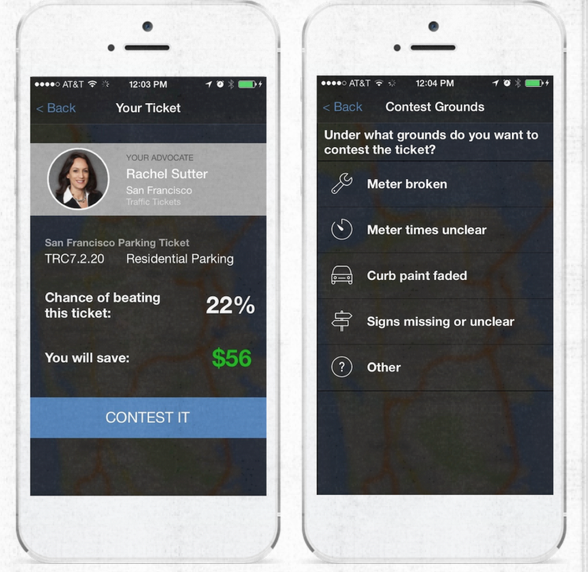This Startup Merges Everyday Tech with Everyday Justice
David Hegarty lives in San Francisco where streets are an urban coliseum and drivers looking for parking spaces are the gladiators. And when a city makes a whopping $130 million a year in parking and driving tickets alone, Hegarty says something’s got to give. So he started Fixed, the easiest way to fix a parking ticket.

David Hegarty Gets a Lot of Parking Tickets
As in a lot of tickets.
He estimates he loses at least $750 a year to meter maids and considers a week without a ticket a pretty darn good week.
Hegarty, however, isn’t your average beleaguered citizen. He likes to take things into his own hands. “As a matter of principle I just always contested my parking tickets,” Hegarty says.
But early last year he allowed four parking tickets to build up — he just didn’t have the time to write four separate letters of contest, mail them, and then wait for the San Francisco Municipal Transit Authority (SFMTA) to get back to him — if they did at all. So Hegarty paid off the tickets. And when he got back out to his car he found another surprise waiting.
“There were two more tickets tucked underneath the wipers,” Hegarty says. “One of them was complete B.S. And I just went ranting and raving about it to one of my friends.”
And that friend told him:
“Why don’t you make an app for that?”

Fixed, the Easiest Way to Fix a Parking Ticket
Hegarty did exactly as his friend suggested. He started off with a fake webpage that immediately went viral in the Bay Area, with 20 thousand shares over Facebook alone in the first week. Then calls came in from CNN and NPR asking for interviews, and Hegarty knew he had something much bigger than himself.
“Everyone you meet has a parking ticket story, and so we tapped into that emotion that people had about it,” Hegarty says. “We certainly touched upon a nerve.”
Hegarty partnered with DJ Burdock to create the Fixed app, where they help users contest their parking tickets. All users have to do is take a photo of their ticket and then Fixed’s team of tech and legal wizards research the validity of the ticket, write a customized letter of contest, send it to the SFMTA, and update with results. If Fixed wins, users owe them 35% of the parking ticket. If Fixed loses, they pay nothing. For users, it’s a win-win.
It’s Not Just a Ticket
Hegarty once had a friend who asked him: “Parking tickets? Well, aren’t you like cheating the government?”
He replied, “Just you spend a couple months in San Francisco and you’ll see how bad it is.”
Just three weeks later that friend got her first parking ticket. Hegarty recalls her fuming and rambling about the injustice of it. “Luckily, we were able to win that ticket for her,” Hegarty says. “But you could see the shift when it becomes so much more than just a ticket.”
San Francisco makes $130 million from parking and traffic tickets every year. It also has the highest parking ticket fine in the United States: $75 minimum per ticket. Imagine getting a ticket every week just commuting to and from work — that hurts more than just a wallet.
On their blog, Fixed references an episode from John Oliver’s Last Week Tonight where the comedian addresses municipal injustices. In part of the segment, Oliver discusses the backwards logic behind excessive parking and traffic violations. In one town, those violations make up 60 percent of their annual revenue.
“When you’re making that much money off those violations, you’re rooting for people to break the law.”
For Hegarty, Fixed is about more than just petty tickets. It’s about fixing what’s broken.
“If you look at how parking tickets are structured, parking tickets are guilty until proven innocent. The people who decide whether you are innocent or not are the SFMTA. So the same people who issue the ticket and will collect the money will decide whether or not you are guilty or innocent.” Hegarty says. That is ripe for perversion of incentives.”
And Fixed is a for everyday people to challenge the everyday injustice of something like a wrongly issued parking ticket. For Hegarty, it might be a small injustice, but it’s injustice nonetheless.
“Your rights begin and end with your ability to access legal resources to basically preserve [those rights],” Hegarty says, “If you can’t access legal resources then those rights and that democracy that we like to preach about doesn’t really exist,”
So it might just seem like a parking ticket, or a traffic ticket, or a moving ticket, but for Hegarty, the little things matter. Accountability, he says, can start small.